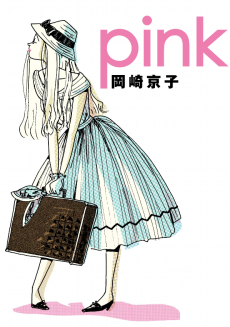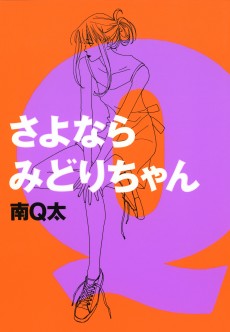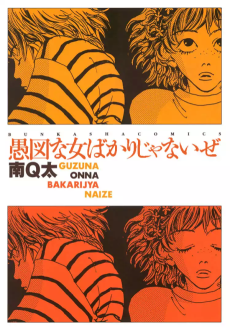KABOCHA TO MAYONNAISE
STATUS
COMPLETE
VOLUMES
1
RELEASE
January 1, 1999
CHAPTERS
10
DESCRIPTION
Miho and Sei are living together. She works at a boutique while he tries to make it as a songwriter and musician. Even though Miho still can’t forget about Hagio, her ex-lover, she is happy in her relationship with Sei.
However, all is not well for the young couple. Struggling to make ends meet, Miho decides to take a second job as bar hostess. As she becomes increasingly desperate for money, Miho eventually gives in to one of her client’s sexual advances. When Sei finds out about this he begins to distance himself from her. Things get even more complicated for Miho when Hagio suddenly reappears in her life.
CHAPTERS
REVIEWS

ohohohohohoho
90/100Nananan is a meticulous artist with a minimal style, a perfectionist who deeply considers the placement of every lineContinue on AniListA simple story told with subtlety. Every panel is an image unto itself, every detail holds meaning. Nananan is a meticulous artist with a minimal style, a perfectionist who deeply considers the placement of every line. But her awareness of the power of narrative structure is also evident both in the framing of this story, and in the idle banter of the characters who are living it.
While the story is "about" Miho and Sei, and involves Miho's unburied feelings toward an ex named Hagio, what we really see are multiple iterations of a similar relationship, one where a man is able to live comfortably thanks to the tremendous, selfless sacrifices of the woman who loves him. We see Miho + Sei, Miho + Hagio, and we hear about Miho's past relationship with Hagio, as well as another of Hagio's past relationships (with, as it turns out, Rika, who is, crucially, a good friend of Miho's throughout the story and supportive of her from beginning to end).
Working through the apparently minor differences in these relationships is what proves to be important in helping Miho figure out what she needs to be happy. The characters allude to this narrative technique while pointing out how we tend to oversimplify things in our own lives when they are talking about blood types (in Japan, it is thought that your blood type says something about your personality, sort of like astrology. I think many anime fans are aware of this but if this is your first exposure to this notion, now you know). Miho says to Rika something along the lines of "there are 4 blood types but billions of people in the world, are there really only 4 kinds of people?"
It's when it hits her that Rika was Hagio's recent ex girlfriend that she is able to see the big differences between Hagio and Sei. She can't believe that Hagio could take advantage of such a kind person, finally recognizing the abusive pattern in his behavior because she is able to feel toward Rika the compassion she could not feel toward herself. While Sei lacks self awareness and lets Miho do too much for him, Miho actually admires Sei's idealism, which is why she is able to do so much for him in the first place. When Sei realizes how much Miho is willing to do for him, it fills him with pain and anger toward himself. It is between Miho and Sei that mutual love and admiration truly exist, whereas the relationships with Hagio are all predicated solely on desire and a toxic power dynamic.
Miho is confused and struggling, but she is a strong person and determined to figure things out. If you aren't put off by this type of story and are able to accept these characters despite their faults and despite their lack of concern with expectations to live up to a typical idea of success, there is a great deal to learn and enjoy from observing these characters. Perhaps we can offer them the compassion we cannot offer ourselves.

Gummyfail
100/100I’ve read one Nananan Kiriko manga and I’m pretty sure I could identify anything she’s done with one page.Continue on AniListThe panels shared here are from the first chapter and all plot information shared is from the basic premise of the story. While I opted to keep this review relatively spoiler-free, I don't think accidentally ingesting spoilers would really change someone's experience of reading it. I made the review as short as possible, because I think anything longer than this would have to be twenty pages long.
Pumpkin and Mayonnaise is a work so tightly wound it is strained to the point of breaking. Every action is slow and quiet, but quiet the way a Tennessee Williams play is quiet. The actions are slow because the characters and Nananan both understand how easy it is to ruin anyone’s life. I wouldn’t call any of the characters in Pumpkin and Mayonnaise good. However, outside of a few select men (and this is definitely about them being men), none of them are actively evil or cruel either.
I think a lot of writers set out to make ‘complex’ and ‘morally grey’ characters. This is a slightly different situation. It doesn’t feel like Nananan is interested in the moral standing of her characters at all. That isn’t to say it's careless, but rather, Pumpkin and Mayonnaise is not interested in moralizing or apologizing for any one person’s shortcomings. It doesn’t seem to be the same cold sense of distance you might have from an attempt at objectivity. The best analogy for the emotional texture I can think of is how a parent might speak of an adult child. There is a warmth and tenderness there, but also an exhaustion and a nearly self-conscious freedom in refusing to excuse mistakes.
There is also a sweetness that Nananan refuses to ignore inside of sickly relationships. The story opens with the clear understanding that Miho has a very particular definition of love and she is actively working to expand it. She became stuck in a posture of loss after a particularly messy situation with her Hagio. She is cohabitating with Sei now, and they seem comfortable, if not especially happy. She is supporting him, but this is important for her sense of security. They are broke, but it feels like both of them kind of want to be.
I think I could go further into the nuance of the character-writing and the idiosyncratic panelling, but focusing on those aspects would distract from the intentionally minimal, glass-fragile construction Nananan wrote into this story. The situation is simple. What the people want is simple. The complexity comes out of their consideration for each other and a lack of money.
This obsessive tidiness is very different from the aggressive negative space you would see in something by Clamp. Its casual demeanor is conversational, but this would never be confused as careless. The conversations are always big ones and Miho, specifically Miho, works to shrink them into small talk and polite affirmation. Nananan expects the audience to work to understand how the outline of her history with both Hagio and Sei would position something into a personality that is constantly, crushingly, curling in on itself.
SIMILAR MANGAS YOU MAY LIKE
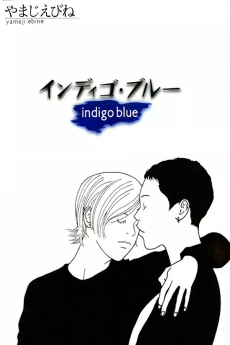 MANGA DramaIndigo Blue
MANGA DramaIndigo Blue MANGA DramaUndercurrent
MANGA DramaUndercurrent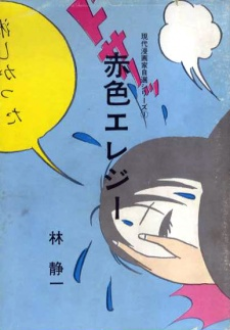 MANGA DramaSekishoku Elegy
MANGA DramaSekishoku Elegy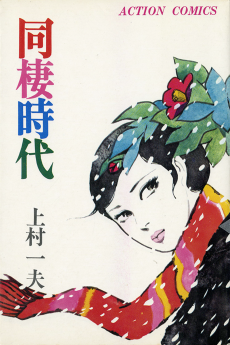 MANGA DramaDousei Jidai
MANGA DramaDousei Jidai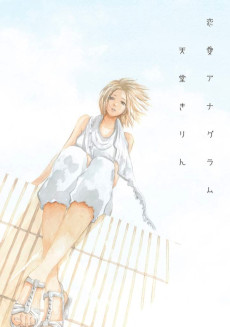 MANGA DramaRenai Anagram
MANGA DramaRenai Anagram
SCORE
- (3.35/5)
MORE INFO
Ended inJanuary 1, 1999
Favorited by 26 Users





